Meal Frequency
Popular advice for weight control advocates the consumption of small, frequent meals. However, the science supporting this as an effective weight control strategy is lacking, and studies examining the effects of eating frequency on body weight have shown mixed results.
Prospective studies have also shown NO association between eating frequency and weight change. Furthermore, other studies reviewed intervention studies of the effects of meal frequency on weight loss or weight maintenance and concluded that meal frequency had NO effect on weight loss and weight loss maintenance.
Purpose of the study
There is a lack of studies comparing the effects of a traditional meal consumption pattern (three meals per day) versus smaller and more frequent meals on fat oxidation and perceived hunger.
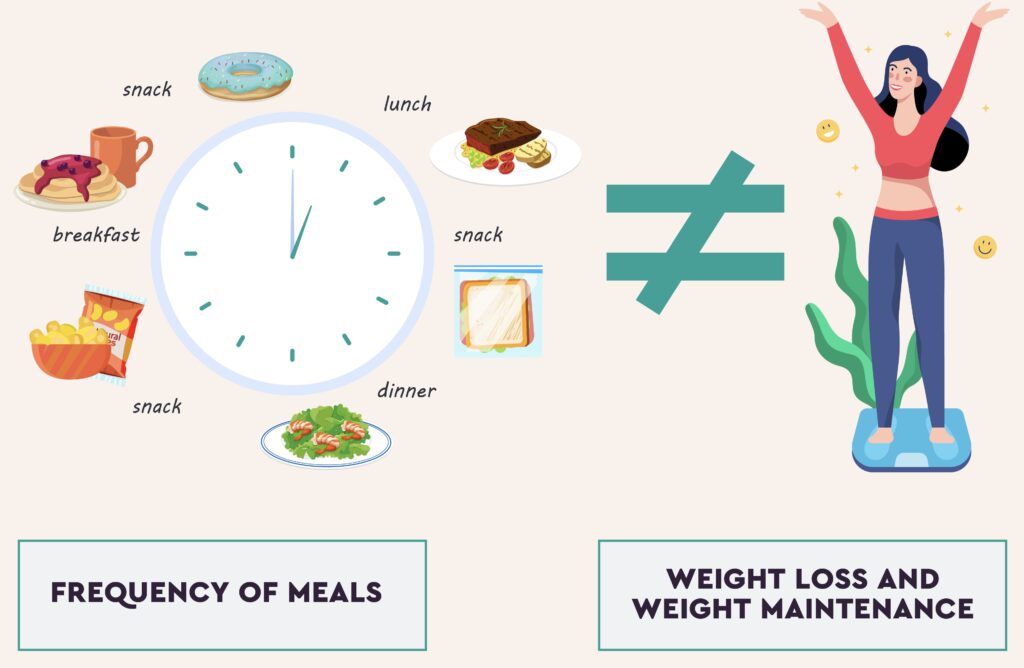
Thus, the aim of the study was to compare the acute effects of consuming three meals a day vs six meals a day on 24-h fat oxidation and perceived hunger.
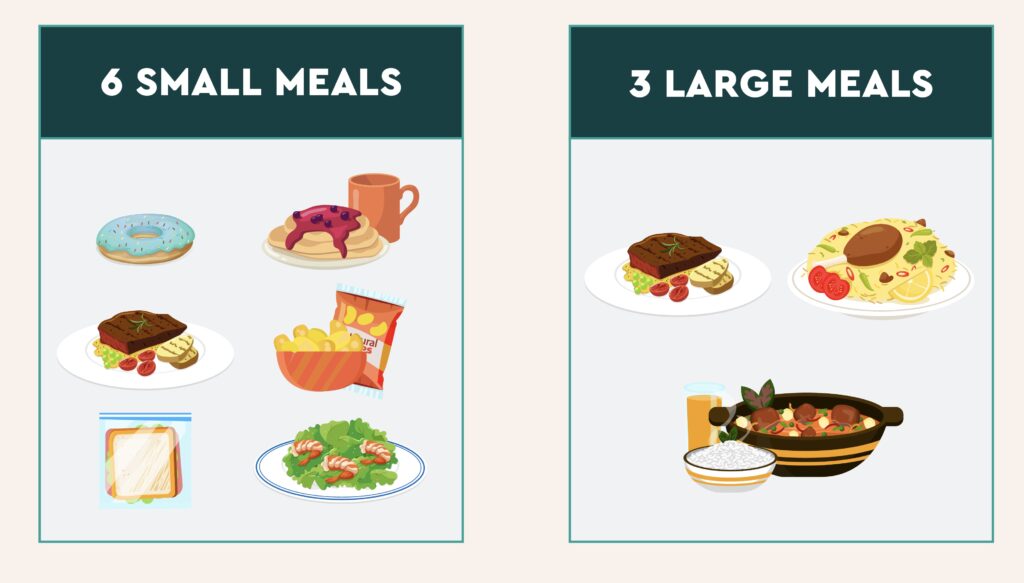
Experiment
15 healthy adult men (7) and women (8) were recruited for this study. Respondents were queried about their age, current and past body weight, physical activity patterns, and health history during an initial telephone screening.

Volunteers who passed the initial screening provided informed written consent and were then invited to participate in health history and physical examination to confirm a good state of health.
BMI was confirmed by measuring height and weight. After acceptance into the study, resting metabolic rate (RMR) and body composition were measured.
Subjects were provided with all meals during the 4-day trials. Study diets consumed during 3 meals and 6 meals were matched for energy and macronutrient content (30% of energy from fat, 55% carbohydrate, and 15% protein).
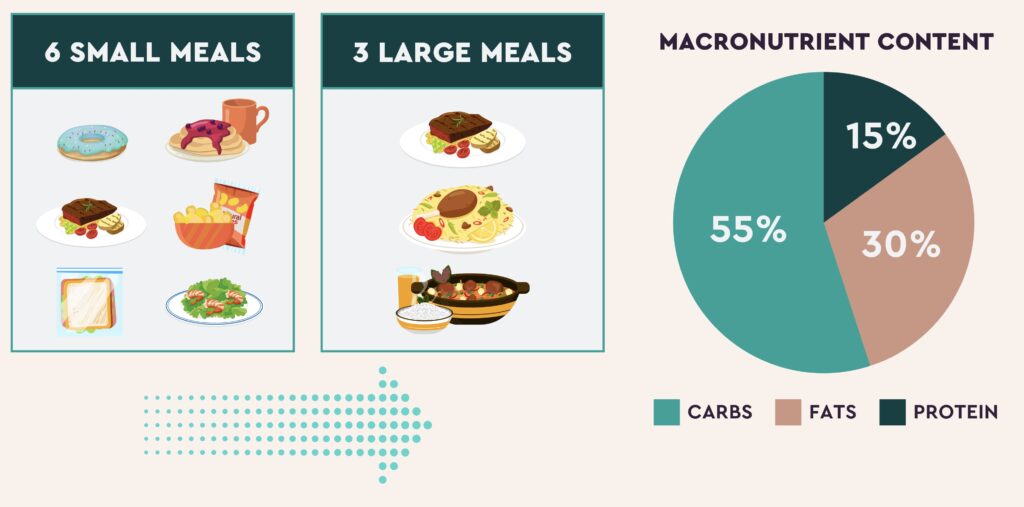
A trained nutritionist designed all diets. The energy content of the diets was estimated to meet free-living energy requirements (Resting Metabolic Rate x 1.5 = Example: 1000 (BMR x 1.5) = 1500 kcal per day) and maintain body weight stability.
Meals were packaged and taken with the subject.
All food was required to be consumed, and no other food was permitted. Subjects were required to return the empty food containers to the study personnel to verify diet compliance.
Meal times were scheduled at equidistant time points; that is, during 3M, meals were served at 5-hour intervals, and during 6M, meals were provided at 2.5-hour intervals.
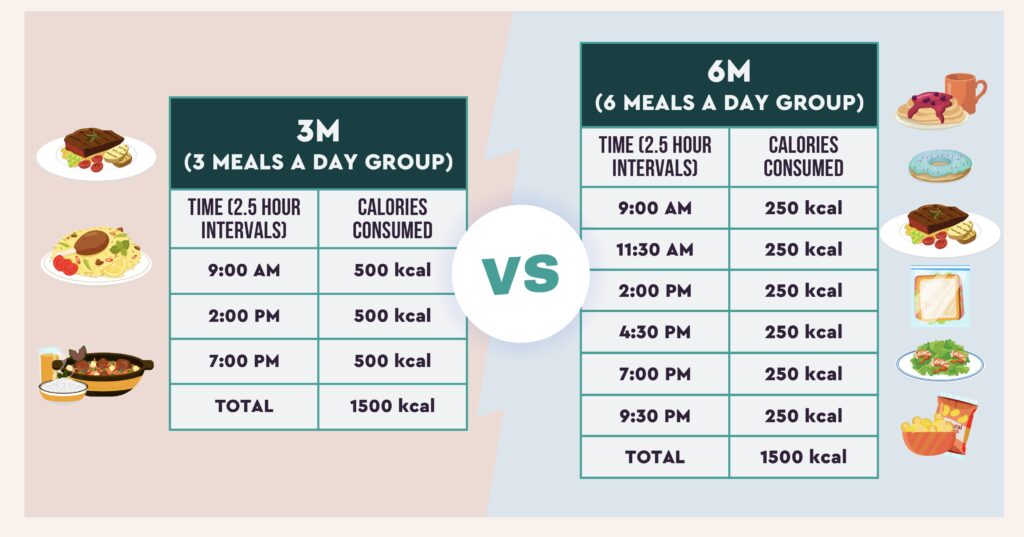
Three of the meals during 6M were provided at the same time as the meals during 3M. The energy distribution was 33.3% at each meal during 3M and 16.7% at each meal during 6M.
Results
Hunger, fullness, and desire to eat ratings were assessed throughout the experiment using visual analogue scales and statistical analysis.
There were NO differences in 24-hour energy expenditure and 24-hour fat oxidation between the 3 meals and 6 meals groups.
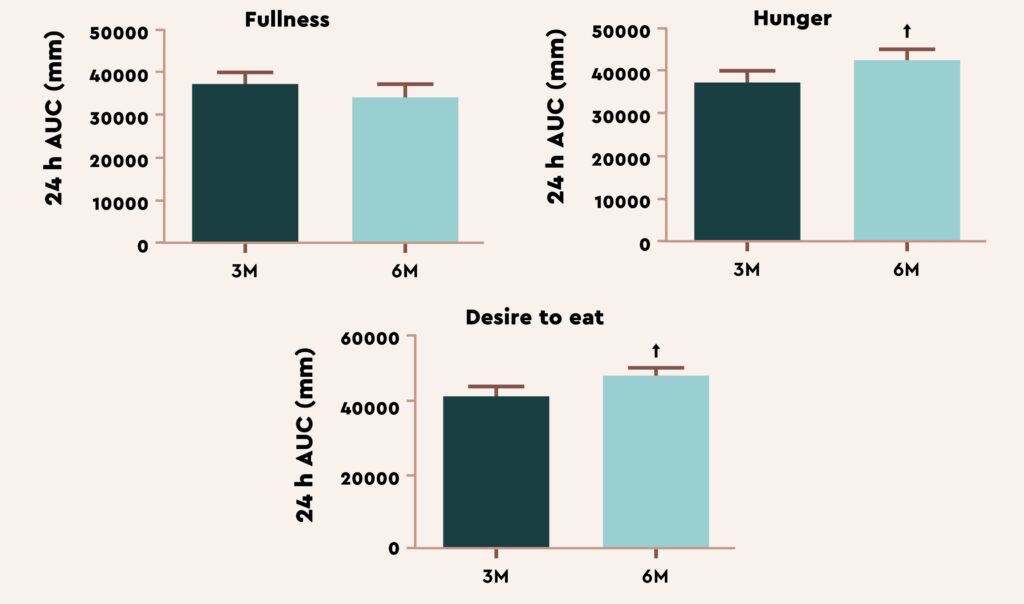
There was no huge difference in fullness, but hunger and “desire to eat” levels were greater during the 6 meals than 3 meals group.
Conclusion
The researchers concluded that increasing meal frequency from three to six per day has no significant effect on 24-h fat oxidation but may increase hunger and the desire to eat.
In summary, although consuming smaller, more frequent meals is often advocated as a means of controlling body weight, the study suggests that this practice has no obvious advantages in terms of its effects on metabolism and appetite and may, in fact, even have adverse effects on hunger and satiety.
Next Steps
Some people are already satisfied to have 2-3 large meals a day because it makes them feel much fuller.
However, other people are the opposite. They feel better eating smaller meals throughout the day.
It would be best to find out what kind of person you are and then implement your daily eating strategy to curb hunger and cravings as much as possible for you.
As long as you’re hitting your calories and macros, especially protein for the day, you will always be on the right track, and you will be one step closer to your goals. ONE DAY AT A TIME.
REFERENCE
PMID: 23404961
Ohkawara, K., Cornier, M. A., Kohrt, W. M., & Melanson, E. L. (2013). Effects of increased meal frequency on fat oxidation and perceived hunger. Obesity (Silver Spring, Md.), 21(2), 336“343. https://doi.org/10.1002/oby.20032
